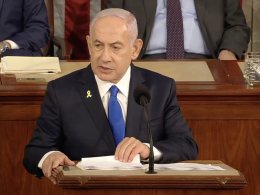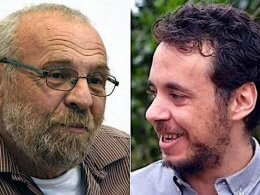Iranian cartoonist jailed for ‘insulting’ members of parliament released
An Iranian woman sentenced to 12 years in prison for “insulting members of parliament” through cartoons she drew has been released after an appeals court reduced her sentence to 18 months.
Atena Farghadani, 29, was arrested in January 2015 and sentenced in May of that year to more than 12 years in prison for drawing a cartoon disparaging members of parliament over their decision to restrict birth control for women.
In September 2015, an additional charge of “illegitimate sexual relationship short of adultery” was added after reports alleged her lawyer shook her hand when he visited her in jail.
At one point Farghadani spent 11 weeks in solitary confinement and was also forced to take virginity and pregnancy tests, Iranian authorities confirmed to the U.N.
Following an appeal, her sentence was reduced last week to 18 months, and earlier today Farghadani was released from Tehran’s notorious Evin Prison, according to her lawyer Mohammad Moghimi.
In a statement posted on Facebook last week, Moghimi thanked Tehran’s Court of Appeal judges who “prepared the grounds for the return of Miss Atena Faraghdani (an artist and an elite student who gained first rank in postgraduate entrance exam) to the society and to everyday life.”
Reporting on Atena’s case last year, I spoke to a close family member about her imprisonment:
“I hope Atena's case is a wake up call for the international community and that they put the human rights on top of the agenda in their dialogue with the Iranian authorities,” he said in a phone call from his home in Tehran.
“The family received threats, which is just another way of putting pressure on Atena and making sure no one speaks to the media,” he said
In August 2014, the Revolutionary Guards raided Farghadani’s home, blindfolded her, confiscated her personal belongings and imprisoned her, according to Amnesty International.
In November that year, she was released for a short period of time, but was called back by authorities six weeks later after she was accused of publicly discussing the torture and beatings she allegedly endured by prison guards, including posting a YouTube video describing her brutal treatment, according to the Human Rights Activist News Agency.
Farghadani posted an open letter to Iran’s Supreme Leader Ayatollah Khamenei to her Facebook page when she was called back to court:
“What you call an “insult to representatives of the parliament by means of cartoons” I consider to be an artistic expression of the home of our nation (parliament), which our nation does not deserve! I, therefore, must pay retribution for defending my beloved defenseless people.”
She was then held in solitary confinement at Tehran’s Evin Prison, where reports indicated she was hospitalized in February 2015 after she spent three weeks on hunger strike and suffered a heart attack.
“Atena is a prisoner of conscience – she has committed no real crime,” Amnesty International said in a statement. “She is being unfairly punished simply for exercising her right to free speech, association and assembly. We've been calling on Iran's Supreme Leader and Head of the Judiciary to release Atena immediately. If not, we'll continue to fight for her freedom.”
Judge Abolghassem Salavati, the judge handling her case, is notoriously known as the “Iran’s hanging judge” or the “judge of death” for sending handing over numerous death penalty sentences, particularly against journalists, bloggers, artists and political activists in arrests made in and around Iran’s Green Revolution in 2009.
Salavati also handled American Washington Post journalist Jason Rezaian’s case.
Farghadani, like many other cartoonists around the world are targeted for criticizing or ridiculing public or religious figures.
A report by the Committee to Project Journalists (CPJ) points to an increase in threats launched against cartoonists in response to their work, an issue highlighted by the Paris attacks on Charile Hebdo four months ago.
Ironically, the regime in Iran hosts its own broadly publicized political cartoon contests with controversial themes including an annual Holocaust cartoon contest and more recently about the Islamic State, while harshly condemning international cartoons depicting the Prophet Muhammad.









